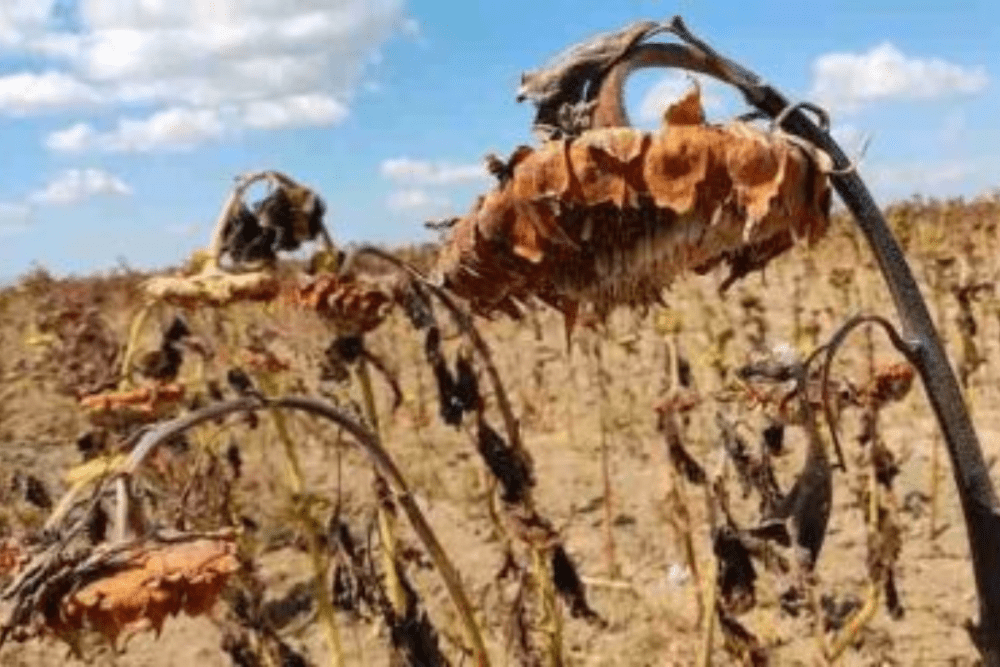Climate Change and Drought: Farmers Face Tough Choices on a Changing Planet

Italy is facing its worst drought in 70 years due to an unprecedented heatwave and ongoing climate change. The river Po Delta in Italy’s northern region is the primary source of water for farmers in the area and its record low levels has resulted in a loss of 70% of crops.
And it’s not just the river Po Delta that’s feeling the heat. One third of all Italy’s agriculture has been impacted. A drought emergency has been declared in 5 major food producing regions. It is unclear if they’re through the worst of it and the best that can be done now is to try and minimize losses.
The reality is, climate change and drought is changing the landscape, literally and figuratively for farmers across the globe. This story illustrates the ongoing water crisis faced by the entire planet due to climate change.
Water Shortages Force Farmers to Make Tough Choices
A warming planet, massive inflation, economic uncertainty, climate change and drought. These crisis points are all converging at the same time, and it seems unlikely that any of them are going away anytime soon. Thus, farmers are left with a series of difficult decisions that they must make about how they will care for their crops, what type of irrigation systems they will use, and even what type of crops they will grow.
Some Focus on Less Water-Dependent, More Profitable Crops
Stuck between a rock and a hard place, many farmers are deciding to shift their crops over solely to less water-dependent options. At the same time, they still need crops that are at least somewhat profitable in order to keep operations afloat. A few examples that fit the bill include:
- Beans
- Tomatoes
- Squash
- Melons
Each of these crops has deep roots and is able to gather water from deeper in the Earth than many others. They are considered to be more drought-resistant, and they are still enjoyed by many on their dining room table. Thus, there is still value to be had with these types of crops, and many farmers are looking to switch their entire farms over to options like this. The unfortunate thing about this is that if too many farmers make the same choice, they may end up tanking the market for these crops as well. It is a delicate balancing act to be sure.
Switching to Smart Irrigation Systems
You might think that right now would not be a time when farmers would not want to add any extra expenses to their bottom lines than what is absolutely necessary, and that is true for many farms, but it is also vital to remember that saving water is also a priority. Investing right now to install smarter, more efficient irrigation systems that save them water may be worth the capital investment.
Smart irrigation systems can help address climate change and drought, by feeding real-time data to farmers who need added visibility into where their water is being used. This is great because it means that farmers can review their water usage across their entire farm to see if there are areas where they can cut back. The farmers are often surprised to discover that there are more than a few spots on their property where things could be done in a more sustainable way. This experience is common, and it simply means that there is more work to do to ensure that they aren't losing valuable resources unnecessarily.
A Better Future
The profession of farming has faced blow after blow over recent years. As challenging as it may be, there is still a bright future in agriculture as long as innovations and investments are made to support the industry and the stewards of our planet.
AgWeek, was quick to point out that 2021 brought the United States back into the fold of international trade. Certain trade policies that had been doing harm to farmers were laid to rest, and the business has begun to grow again. There are still plenty of mouths to feed on this Earth, and that number is only growing by the day. Irrigation and climate change are intricately linked forever. The most important thing to remember is that by using our resources wisely, we can continue to share in the brighter future that is possible. To learn more about how smart irrigation technology can help fight climate change and drought contact us here or email us at [email protected]